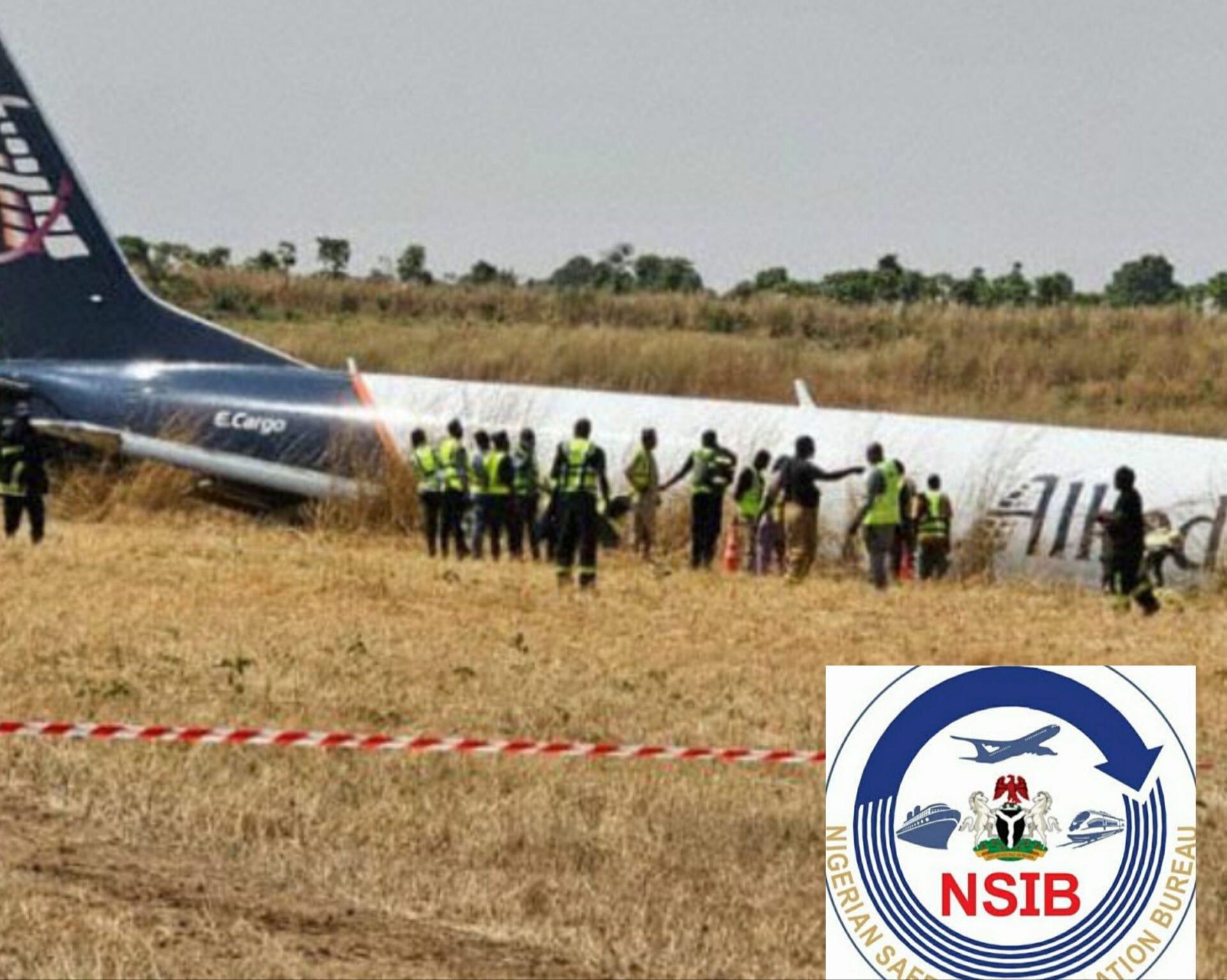NSIB Releases Preliminary Report on Allied Air’s Boeing 737-400 Freighter Incident

The Nigerian Safety Investigation Bureau (NSIB) has released its preliminary report on the accident involving a Boeing 737-400 Freighter, registered as 5N-JRT and operated by Allied Air Limited, which occurred at Nnamdi Azikiwe International Airport, Abuja, on 11 December 2024.
The aircraft, en route to pick up cargo for the Central Bank of Nigeria, suffered a flap malfunction during its final approach, leading to a high-speed landing and a failure of its right main landing gear.
Incident Overview
According to the report, the aircraft departed Murtala Muhammed International Airport, Lagos, at 09:11, with the First Officer as the Pilot Flying and the Captain as the Pilot Monitoring.
While attempting to deploy Flaps 30 during its approach at 09:44, the flaps became stuck at Flaps 15, forcing the crew to conduct a landing with reduced lift.
Upon touchdown at 157 knots, a loud bang was reported from the right side of the aircraft.
The right main landing gear assembly detached, causing the No. 2 engine nacelle to scrape along the runway for approximately 1,172 metres before the aircraft veered off into the grass verge, where it came to rest at 170 degrees from its runway heading.
The NSIB’s investigation revealed significant damage to the aircraft, including:
The right main landing gear shearing off from its attachment point.
Burst No. 3 and No. 4 main wheel tyres.
Structural damage to the No. 2 engine nacelle and lower right-wing section.
Despite the severity of the incident, all six occupants onboard escaped unharmed, safely evacuating through the forward main door.
Preliminary Findings
The NSIB’s initial investigation established the following:
Flight Crew Competency: Both the Captain and First Officer held valid licences and medical certificates.
Aircraft
Airworthiness: The aircraft had a valid Certificate of Airworthiness and had completed 101 landings since 1 November 2024, with 85 of those using Flaps 15.
Weather Conditions: Weather at the time of the incident was favourable, with no adverse meteorological factors affecting the flight.
Aircraft Systems: All navigational and communication equipment were serviceable, except for the Airfield Lighting Panel System.
Landing Impact: There was no evidence of a hard landing, and no prior flap malfunctions were recorded in the aircraft’s technical logbook.
Immediate Safety Recommendation
In response to the incident, the NSIB has issued Safety Recommendation 2025-001, urging the Nigeria Civil Aviation Authority (NCAA) to conduct a thorough inspection of all Allied Air aircraft, focusing on potential vulnerabilities in the flap drive system and landing gear assemblies.
Next Steps in the Investigation
The NSIB’s ongoing inquiry will focus on:
A detailed examination of the right main landing gear assembly.
Further analysis of the aircraft’s flap drive system, including transmission assemblies and actuators.
An assessment of the main wheel tyres for signs of failure or excessive wear.
The NSIB reaffirmed its commitment to enhancing transport safety through comprehensive and independent investigations.
“Our objective is to identify the probable causes of such incidents and advocate for necessary safety improvements,” the Bureau said in a statement signed by Mrs Bimbo Olawumi Oladeji, Director of Public Affairs and Family Assistance at NSIB.
The NSIB encouraged stakeholders and the public to stay updated on the investigation by visiting its official website and social media platforms.
The full preliminary report is available for download on the NSIB website.
This preliminary report provides crucial insights into the Abuja Airport incident and highlights the need for rigorous safety checks to prevent future occurrences.
The NSIB assured that it will continue its investigation to determine the root cause of the malfunction and recommend further safety measures.







